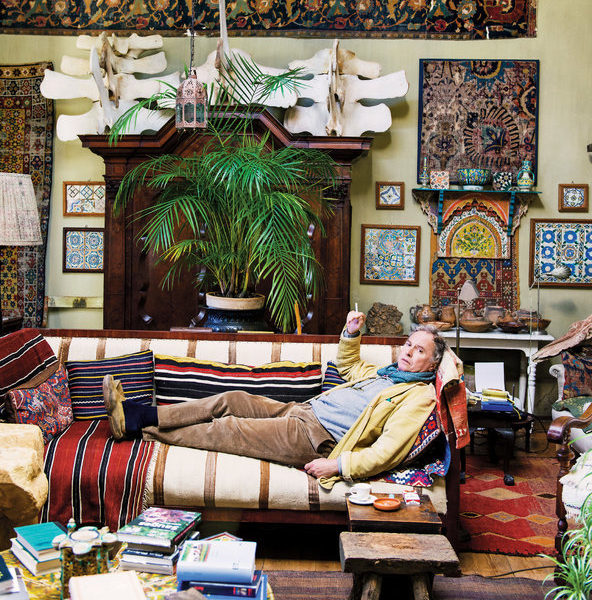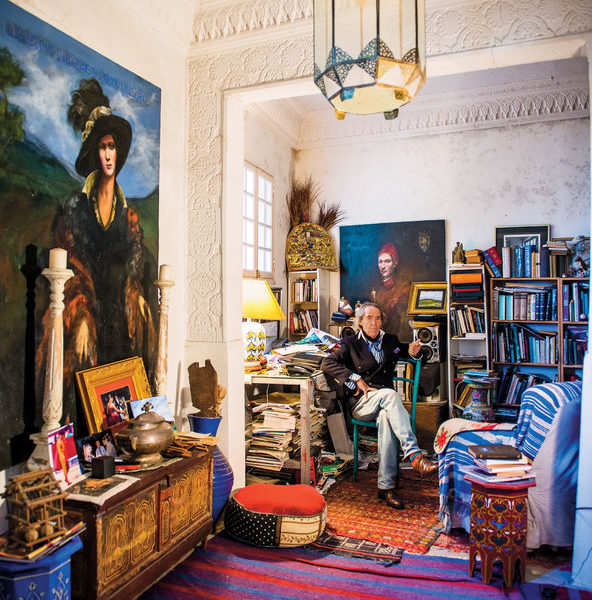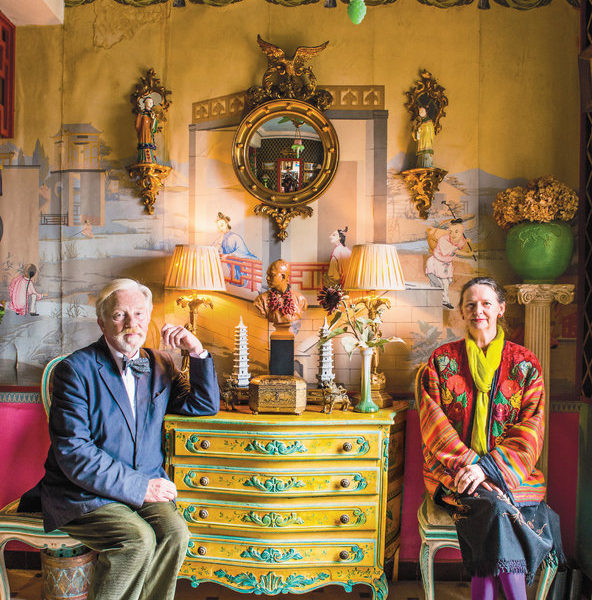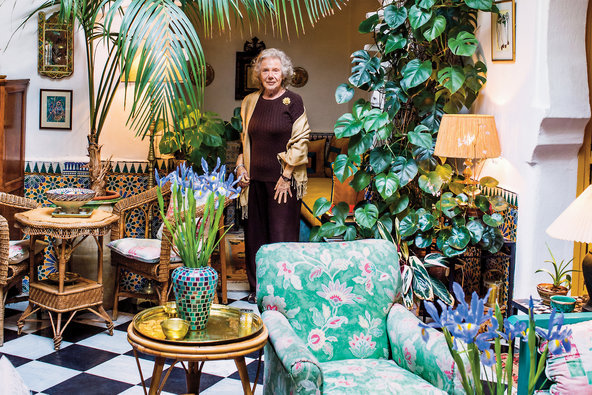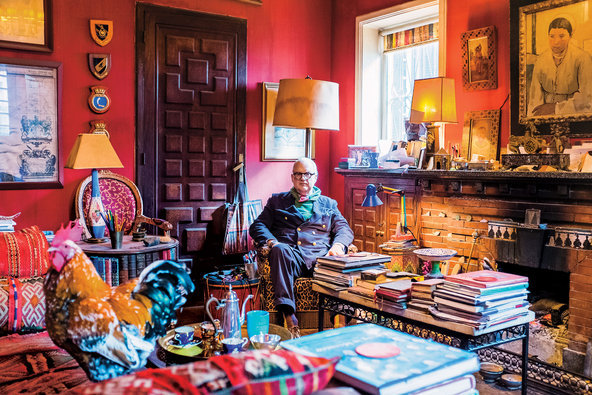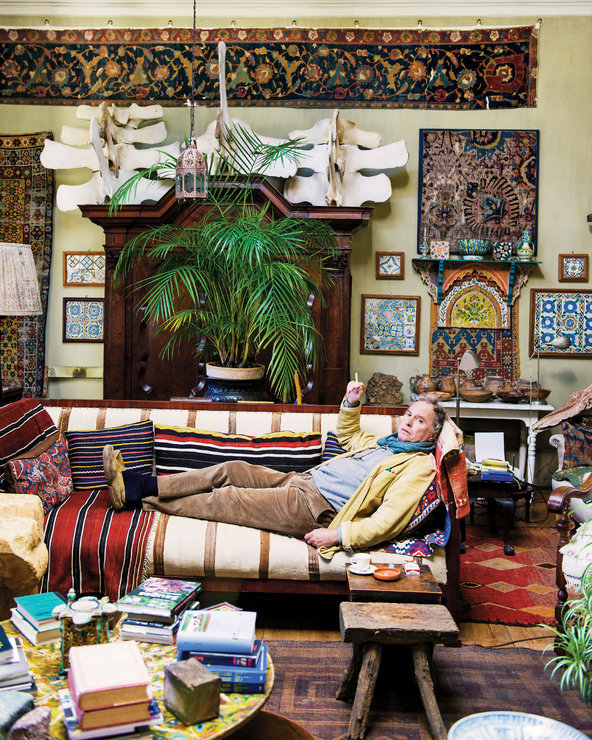
The New York Times’ Style Magazine published a feature a few months ago on Tangier, a northern Moroccan city that has long been a destination for European and American diplomats, spies, writers, and businessmen. The story focuses on the expat community there and their eccentric style. People who came to visit, and decided to never leave. An excerpt:
It’s an old story — as old as sailing and sex — yet there is always something new coming over the strait. Indeed, it may be the hunt for newness in an old port that brought them here, adventurers and outsiders — from Mark Twain and Delacroix to Yves Saint Laurent and Tennessee Williams — who merely broke the path for the uprooted of today. Deep in the Casbah and high on the slopes of Vieille Montagne, you find these people, these elegant, exotic plants who fill their days with lunch parties and gossip. They may be the harmless denizens of an old idea, doing it with style, living beyond their means but strictly within their taste. It is a painted city where ripe vegetables and aged spies litter the souks, where men of hidden consequence can always find a drink. Most of all, Tangier is a city where attention to detail is undivided, a place where you meet people just crazy for beauty.
[…]
In a large old room smelling of narcissi, Pasti sat me down and smiled through cigarette smoke. The tables around us were filled with strange shells, bones and Neolithic pottery. I looked around as he spoke and you could almost breathe the beauty: a piece of an Islamic column from Spain, an Italian Renaissance stemma, many Berber pots, pine cones and marble busts. Past a big 17th-century German armoire was a fireplace of the same period. An 18th-century Venetian screen held back a little of the evening air, which came, nonetheless, rosemary-scented and chilled. Painted Moroccan chests and side tables were dotted everywhere — “I love patina,” he said — and around the walls was a multitude of astonishing tile panels, some from Seville and Portugal and fired 200 years before the birth of Shakespeare. Pasti writes novels and makes gardens. He is both intensely sociable and extremely private. Walking from room to room in his perfect house, he seemed somewhat like a man in a fairy tale, lost in beauty, hiding behind windows in a secret garden. But then he laughed and puffed on his cigarette and seemed quite normal again. Pasti started as a literary critic and then began collecting strange fragments and rare bulbs, which he would plant in his garden in the Moroccan countryside, and also in pots at his house in Tangier. His first novel is the story of a botanical obsession. “I started collecting wild bulbs more or less 15 years ago,” he said. He sometimes sleeps outside among the plants. In some ways he considers himself to be a kind of doctor to sick plants and sees his place in the country as a kind of botanical hospital.
You can read the whole article, and view a very, very cool video feature that goes along with it, here.
